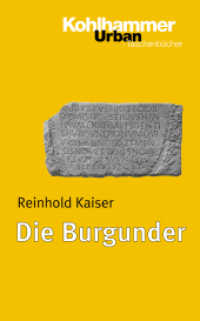- ホーム
- > 洋書
- > 英文書
- > Philosophy
Full Description
Socrates, one of the first of the great philosophers, left no written works. What survives of his thought are second-hand descriptions of his teachings and conversations—including, most famously, the accounts of his trial and execution composed by his friend, student, and philosophical successor, Plato. In Euthyphro, Socrates examines the concept of piety and displays his propensity for questioning Athenian authorities. Such audacity is not without consequence, and in the Apology we find Socrates defending himself in court against charges of impiety and corruption of the youth. Crito depicts Socrates choosing to accept the resulting death sentence rather than escape Athens and avoid execution. All three dialogues are included here, as is the final scene of Phaedo, in which the sentence is carried out.
Contents
Introduction
Who Were Plato and Socrates?
Plato
Socrates
What Was Plato' Overall Philosophical Project?
What Is the Structure of These Dialogues?
Some Useful Background Information
The Political Context
The Religious Context
The Legal Context
Sophism
How Important and Influential Are These Dialogues?
Cast of Characters
Timeline
Suggestions for Critical Reflection
Suggestions for Further Reading
Translator's Note
Euthyphro
Apology
Crito
Death Scene from Phaedo
Bibliography
Index








